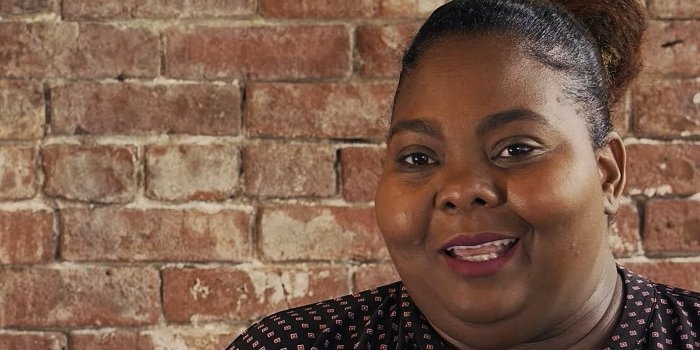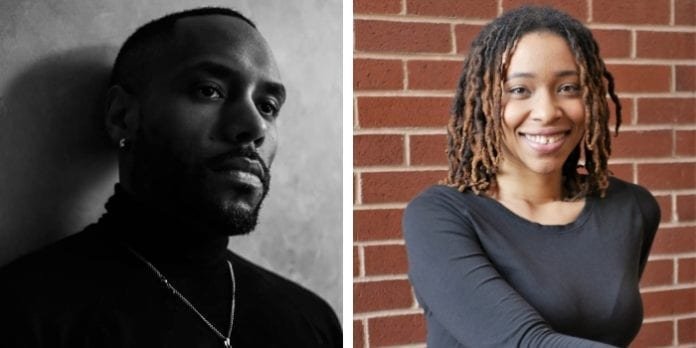As part of this year’s Halifax Black Film Festival, five Halifax filmmakers join 15 others from Montreal and Toronto in the Being Black in Canada Film Series. In the twenty documentary shorts, the emerging filmmakers created their films through mentorships with industry experts in all aspects of film production.
Among the films is Tyler Simmonds’s The Search For Healing, a personal story of courage and self-discovery in dealing with mental illness.
“It is mainly based on my experiences living with mental health and my different experiences within the healthcare system,” says Simmonds by phone.
Inspired by a desire to show others they are not alone, Simmonds opens up about his own struggles with mental illness in the ten-minute short.
“I wanted to let them know that it is okay to open up about their mental health and seek help,” he says.
A mental health advocate, while Simmonds has opened up publically about his mental health journey in the past, it is quite a different prospect to talk about his story on film.
“It is always challenging because you have to be really vulnerable so it can be heard,” he says.
For Simmonds, the benefits outweigh any vulnerability, as The Search For Healing has also led to a better understanding of himself.
“I have to learn more about myself and about my upbringing and stuff like that,” he says. “The whole research process really helps me become more self-aware about myself.”
Much of that self-discovery about his battle with mental illness came from the medical professionals he interviewed for the film and his family’s support.
“There were a lot of things that I felt growing up and things I still feel about these stereotypes and stigma that comes along with being a Black man,” he says. “Just getting that confirmation from these healthcare professionals of how this is valid was really helpful for me.”

By exposing his own story, Simmonds is hopeful others in his community will begin having mental health conversations and seek help.
“I hope that the people outside the Black community will have a better understanding of mental health and the things that we go through,” he concludes.
In a story of resilience, filmmaker Lily Nottage turns to the immigrant experience in her documentary short Farrin.
The Jamaican Patois word for foreign, Farrin, follows Christine Allen’s journey from Jamaica to Canada’s east coast.
The owner of Halifax’s Brawta Jamaican Jerk Joint restaurant on Grafton Street, Allen’s story and that of her daughters Judy-Ann and Dehjani, was borne from Nottage’s love for food.
“Initially, I wanted to make it like a food documentary because I am a foodie myself,” says Nottage by phone. “I thought of no better way to do that than with a Black woman.”
Inspired by shows like Chef’s Table and Street Food, Nottage saw an opportunity to delve further into a local chef and restauranteur’s life with her film.
“Most of the time, people only see the front end of the restaurant or the final dish, but they don’t know the story behind the dish,” she says.
A fan of Allen’s restaurant, it was the first that came to Nottage’s mind when she considered a subject for her documentary.
“I’ve been to the restaurant before, and it was a place that I really love, and it that reminded me of home myself,” she says.

Delving into Allen’s story, Nottage saw parallels to her own experience.
“As I was interviewing Christine’s two daughters, in the middle of the interview, I started crying because everything they were saying resonated so clearly with me and the sacrifices my mother made. I didn’t expect that to happen. That was very shocking,” she says.
However, what resonated most for Nottage came from Allen’s desire to connect with the restaurant patrons and the struggles that the restauranteur experienced in establishing herself in Halifax.
“It is something that a lot of immigrants can attest to,” says Nottage. “Finding a place, struggling with finances, and trying to make ends meet. Many immigrants can relate to it because they would have experienced it one time or another when they come to another country.”
For Nottage, Allen’s story gives inspiration and hope.
“I compare it to a phoenix that rises out of the fire and comes out so much stronger,” she says. “I want people to see we are resilient. Despite all the obstacles that come your way and things that try to pull you down, you shouldn’t give up because you never know what will come out of your story.”
The Being Black in Canada Film Series screens as part of this year’s Halifax Black Film Festival, running online from February 23-28. Visit halifaxblackfilm.com for tickets and information.


